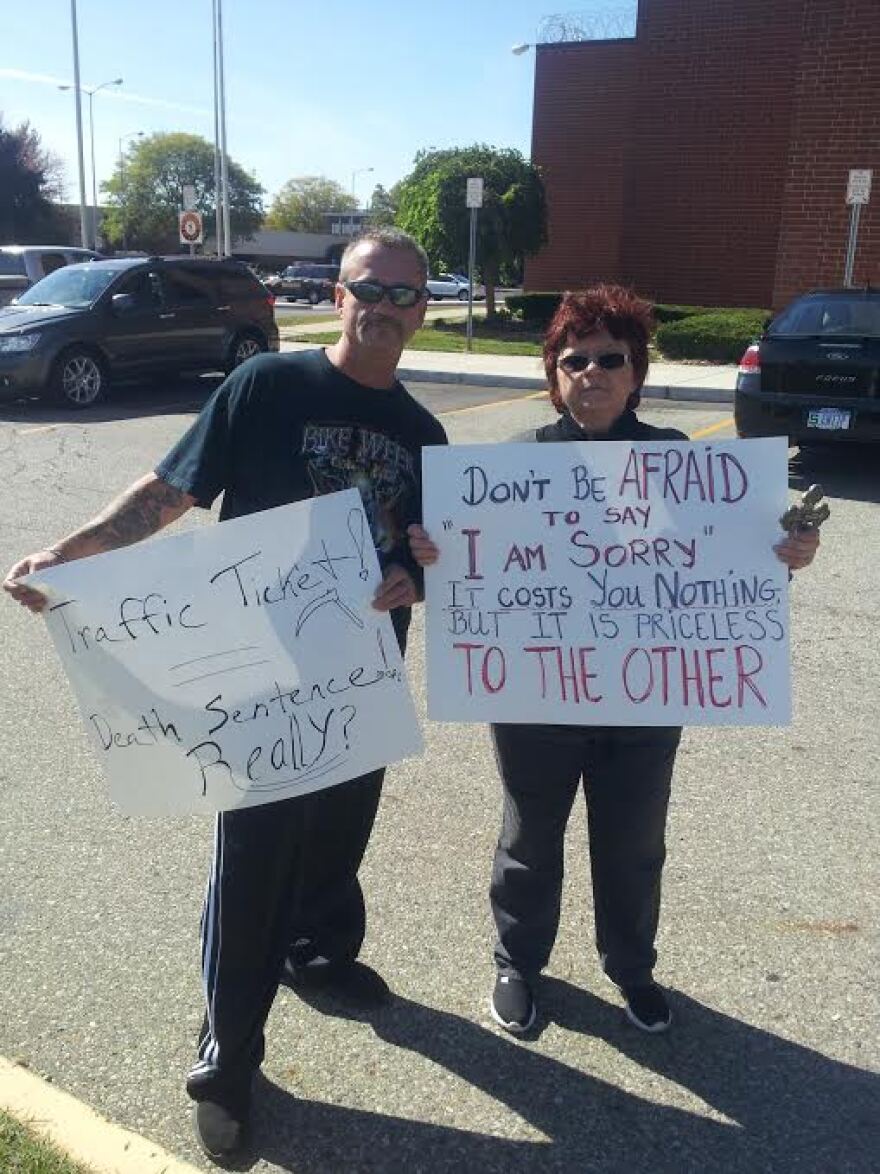Friends, family and supporters of David Stojcevski protested outside the Macomb County jail in Mt. Clemens Saturday.
Stojcevski died of prescription drug withdrawal after spending 16 days in the jail in 2014. He was serving 30 days for a driving offense because he could not afford to pay $772 in fines.
“Justice for my son!” said Dafinka Stojecviski, David’s mother. “Shame on them for what they [did] to my son. Shame on Macomb County jail!”
Stojcevski was under 24-hour video surveillance in the jail’s mental health unit.
Video footage of his suffering and death became public just last month, as part of a federal lawsuit his family filed against the jail and county officials.
That video is difficult for most people to watch, but especially so for people who knew Stojcevski, like Tabitha Matheney.
“I watched the video, it made me sick,” said Tabitha Matheney, whose boyfriend was one of Stojcevski’s childhood friends. “Probably one of the grossest things I’ve ever seen in my life.”
The protesters want to see corrections officers, medical staff and Sheriff Anthony Wickersham held accountable for Stojcevski’s death, which they say was the result of neglect and inadequate medical care.
They also called for better, more humane treatment of drug addicts in custody — including access to prescription medications, which they believe could have easily saved Stojcevski’s life.
Macomb County officials have declined to comment specifically on the case, citing the family’s lawsuit. But they’ve also denied wrongdoing, saying corrections officers did their jobs, and that the jail has adequate procedures in place.
The FBI is now reviewing the case.
Terry Parrish, a counselor who sometimes works with people who have been incarcerated, says it’s true the corrections system is overburdened with inmates suffering from substance abuse and mental health issues.
But she says the system still needs to be held accountable for protecting inmates’ health and welfare.
“It’s as simple as that,” Parrish says. “There’s no process to hide behind. There’s right and wrong.”






